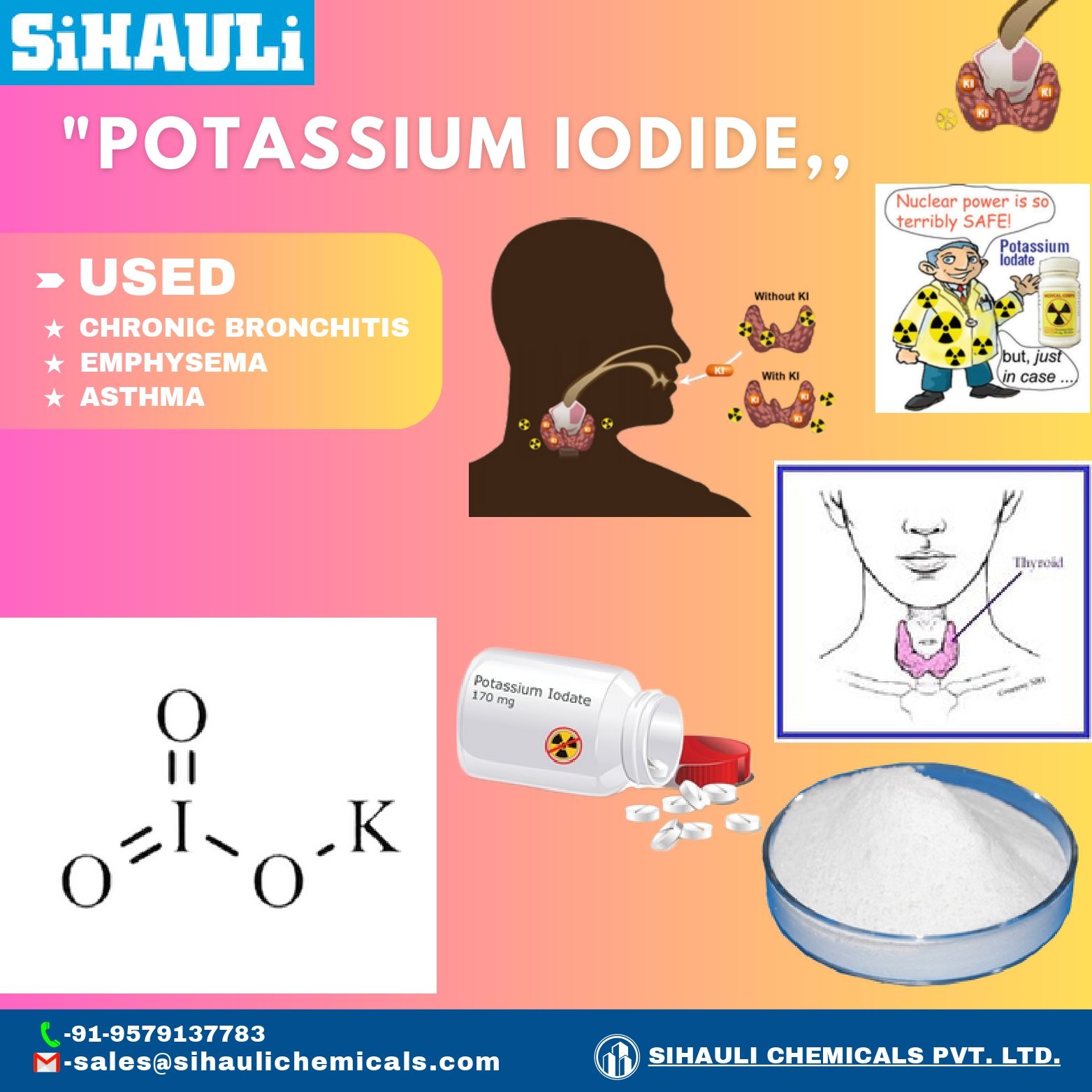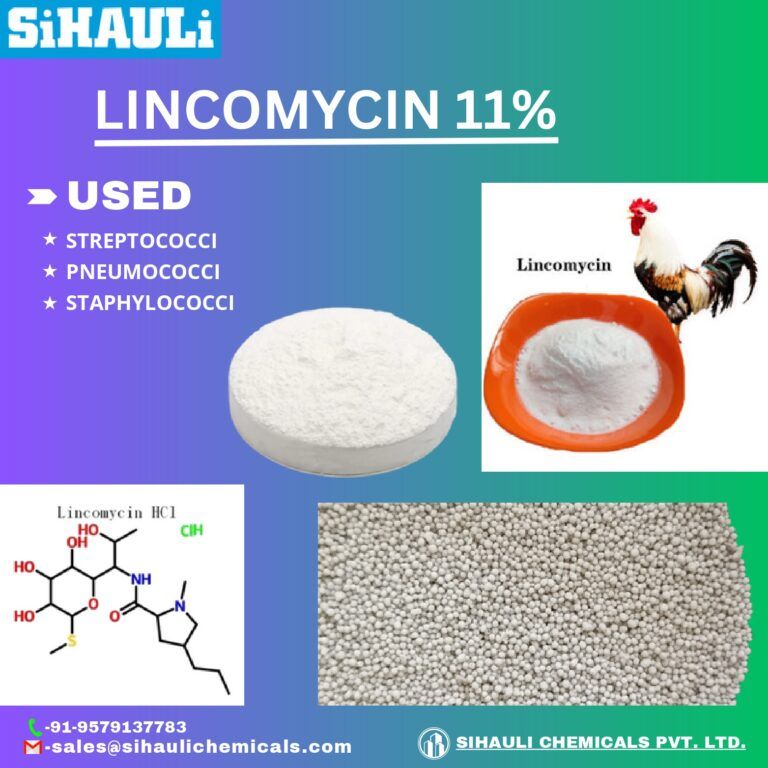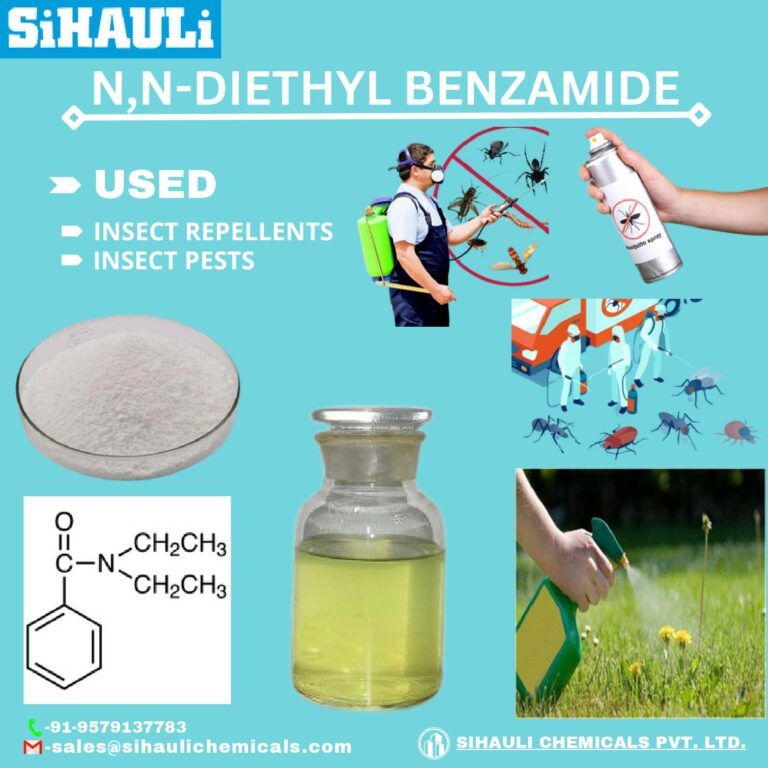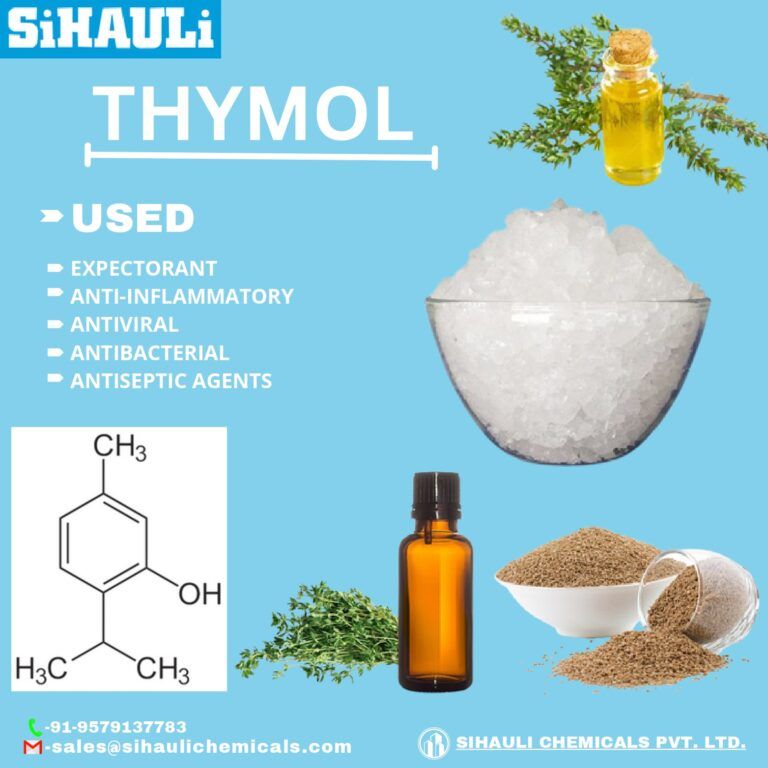Potassium iodide (KI) is a chemical compound that can be used to protect the thyroid gland from possible radiation injury caused by radioactive iodine (radioiodine). Some radiological emergencies may release large amounts of radioiodine to the environment.
Uses of Potassium Iodide
- It is used as a nutritional supplement in the human diet as well as in animal feeds.
- It is used in table salt as the most common additive.
- It is used to avoid the loss of iodine due to oxidation from salts.
- It is used in the treatment of hyperthyroidism.
- It helps in promoting hormonal balance.
- It helps to filter out chlorides, bromides, fluorides, and mercury from cells and tissues.
- It is used as an expectorant to break up the mucus so the patient can breathe easily.
- It can help in shrinking the size of the thyroid gland and also decreases the number of thyroid hormones produced.
Potassium iodide is most commonly talked about in the context of the treatment of thyroid problems and the hazards of radioactive contamination. However, this popular chemical has a much wider spectrum of action. What should we know about potassium iodide, and what are its properties and uses? Here is a summary of the key facts.
What is potassium iodide? It is an inorganic chemical substance, also known as potassium salt of hydriodic acid. It is manufactured under laboratory conditions primarily for the pharmaceutical industry as an additive to medicines, ointments, liquids and dietary supplements.
Potassium iodide: physico-chemical properties
Potassium iodide is an odourless, non-flammable, water-soluble chemical substance with a salty bitter taste. It is in the form of fine white crystals, and it may also be transparent. What else should we know about it and what are its properties? Here are the key facts:
- the density of potassium iodide is 3.12 g/cm3,
- the melting point of Kl is 681°C, and its boiling point is 1323°C,
- potassium iodide is also dissolved in ethanol and glycerol.
Potassium iodide solution is a substance that does not tolerate changes in environmental conditions well. When it is overheated and subjected to moisture, it causes corrosion of metals and produces harmful hydrogen and nitrogen oxides. After it is dissolved in water or when it evaporates, the Kl solution demonstrates corrosive properties: it irritates the skin, nasal mucosa and the eyes and disturbs the digestive system, causing a range of gastrointestinal problems.
Potassium iodide – application in medicine and more
Today, potassium iodide is very widely used in many industries. It is primarily used for the production of medicines, disinfectant liquids and dietary supplements (Lugol’s iodine, iodine). As a medicinal product, potassium iodide has versatile effects on the human body:
- it protects the thyroid,
- it has an anti-inflammatory effect,
- it shows an expectorant effect,
- it helps in the treatment of sporotrichosis, a fungal infection of the skin (potassium iodide has a damaging effect on the pathogenic fungi Sporothrix schenckii).
When consumed in excess, potassium iodide has an adverse effect on the human body: it can cause swelling, nausea and allergic reactions, and even depressive disorders! Therefore, it is obligatory to consult a doctor or pharmacist before starting potassium iodide treatment.
What are some other uses of potassium iodide? This inorganic compound is used, among other things, for:
- iodination of table salt,
- treatment of drinking water,
- quantitative chemical analyses (known as titration),
- physical analyses (spectroscopy),
- qualitative analyses of food products (potassium iodide solution facilitates starch content detection),
- production of light-sensitive photographic emulsion.




